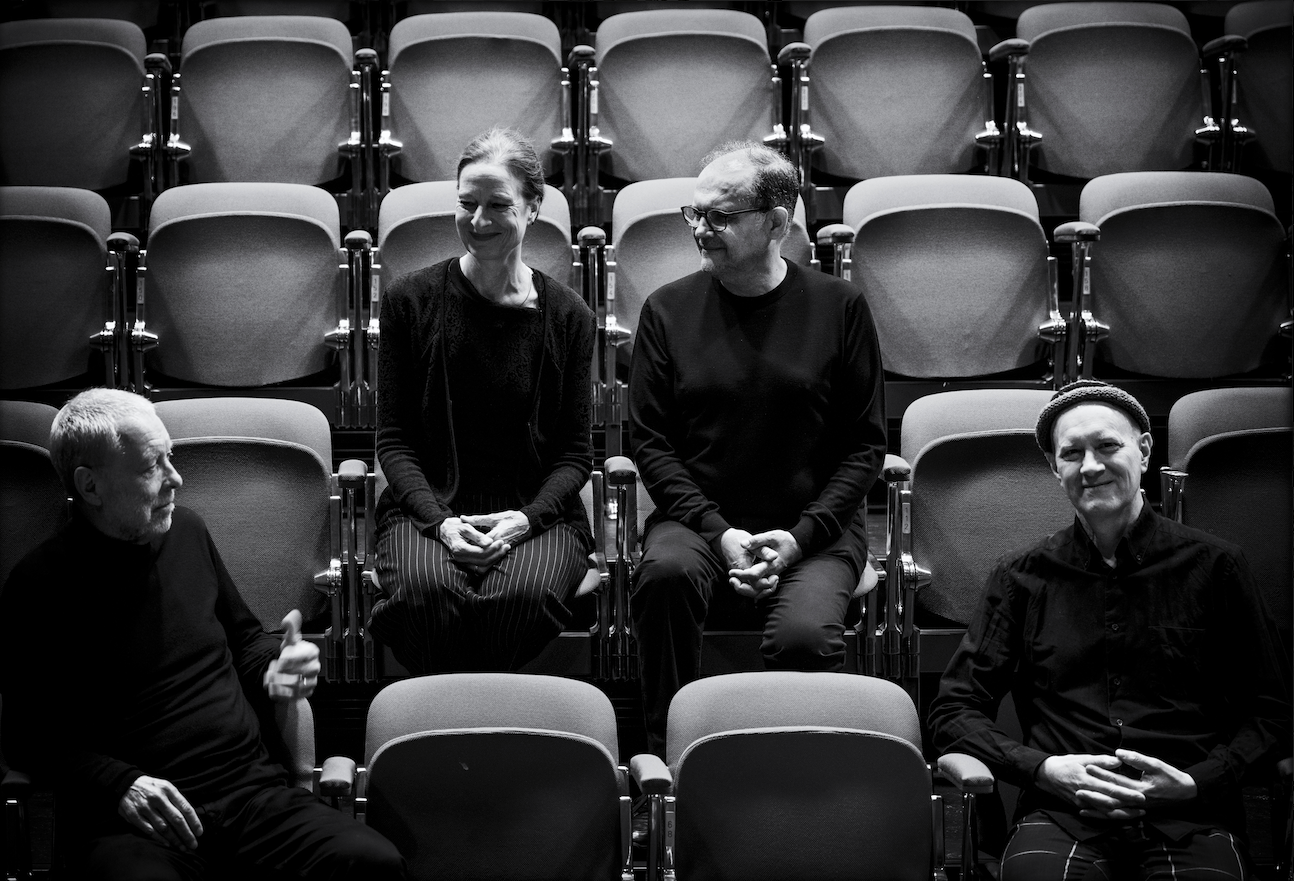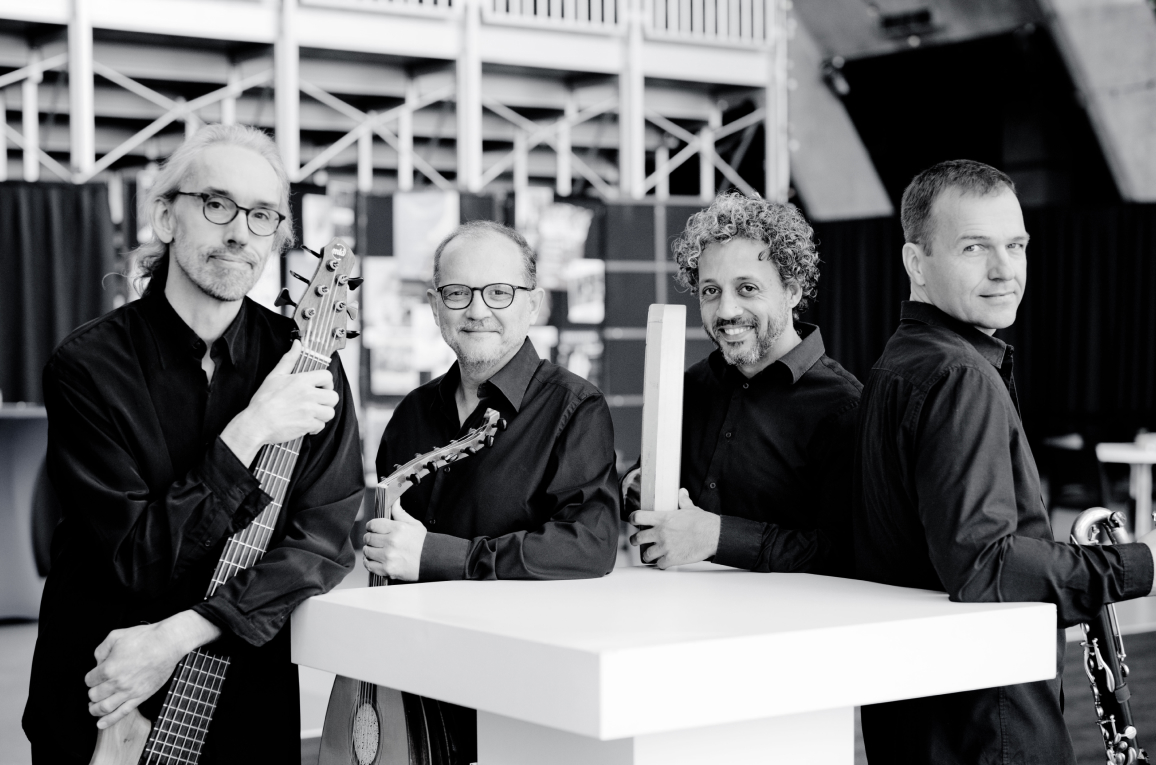Anouar Brahem "After the Last Sky"
Eight years after Blue Maqams, Anouar Brahem returns with a poignant project, titled after a line of verse by Palestinian poet Mahmoud Darwish, which asks “Where should the birds fly, after the last sky?” Graceful chamber pieces for oud, cello, piano and bass subtly address the metaphysical question and its broad resonances in a troubled time. While drawing upon the traditional modes of Arab music, Brahem has consistently sought to engage with the wider world, too, and found inspiration in many sources from different cultures. Bassist Dave Holland and pianist Django Bates are again part of the Tunisian oud master’s international quartet, joined now by cellist Anja Lechner. Brahem’s rapport with Holland — first established on the Thimar album of 1998 — is meanwhile legendary. “Dave’s playing gives me wings”, Anouar has said, an observation that materializes repeatedly across the record. Django Bates’ piano, an important supportive force throughout, contributes swirling solos. The album marks the first time that Anouar has included a cellist in his group music. Anja Lechner, a leading voice in the recording, has long been conversant with Brahem’s compositions and included them in her own recitals. The cello is given the first and last statements here.
After the Last Sky was recorded at Lugano’s Auditorio Stelio Molo RSI in May 2024, and produced by Manfred Eicher. The album is issued as the Brahem quartet embarks on a European tour with concerts in France, Germany, the Netherlands, Switzerland and Belgium.

- Anouar Brahem, oud
- Anja Lechner, violoncello
- Django Bates, piano
- Dave Holland, double bass
Anouar Brahem Quartet
For almost forty five years and with a rich discography now covering no less than 11 albums on the ECM label, Anouar Brahem has been constantly placing the age-old tradition of Arab music, whose emblem is his oud and its superb finesse, in different situations, where he not only contrasts it to modern jazz but also to the sophisticated harmonies of the erudite compositional tradition of the West and the refined forms of other ancient cultural traditions from the Orient.
Today, he can draw on the experience he has gathered over the years in his concerts with other musicians. Here he has decided to commit with the Quartet created in 2009 for the album The Astounding Eyes of Rita, to a project returning to his former terrain for the first time ever through a repertoire combining several of the group’s usual themes, together with some taken from older albums (Conte de l'Incroyable Amour, Madar, Thimar, Astrakan Café, …).
As leader of this group, more lively and creative than ever after ten years of close understanding between himself and his musicians, Anouar Brahem is now casting a fresh look at his musical universe and opening up some original horizons for it.

- Anouar Brahem: oud
- Klaus Gesing: bass clarinet, soprano saxophone
- Björn Meyer: bass
- Khaled Yassine: darbouka, bendir